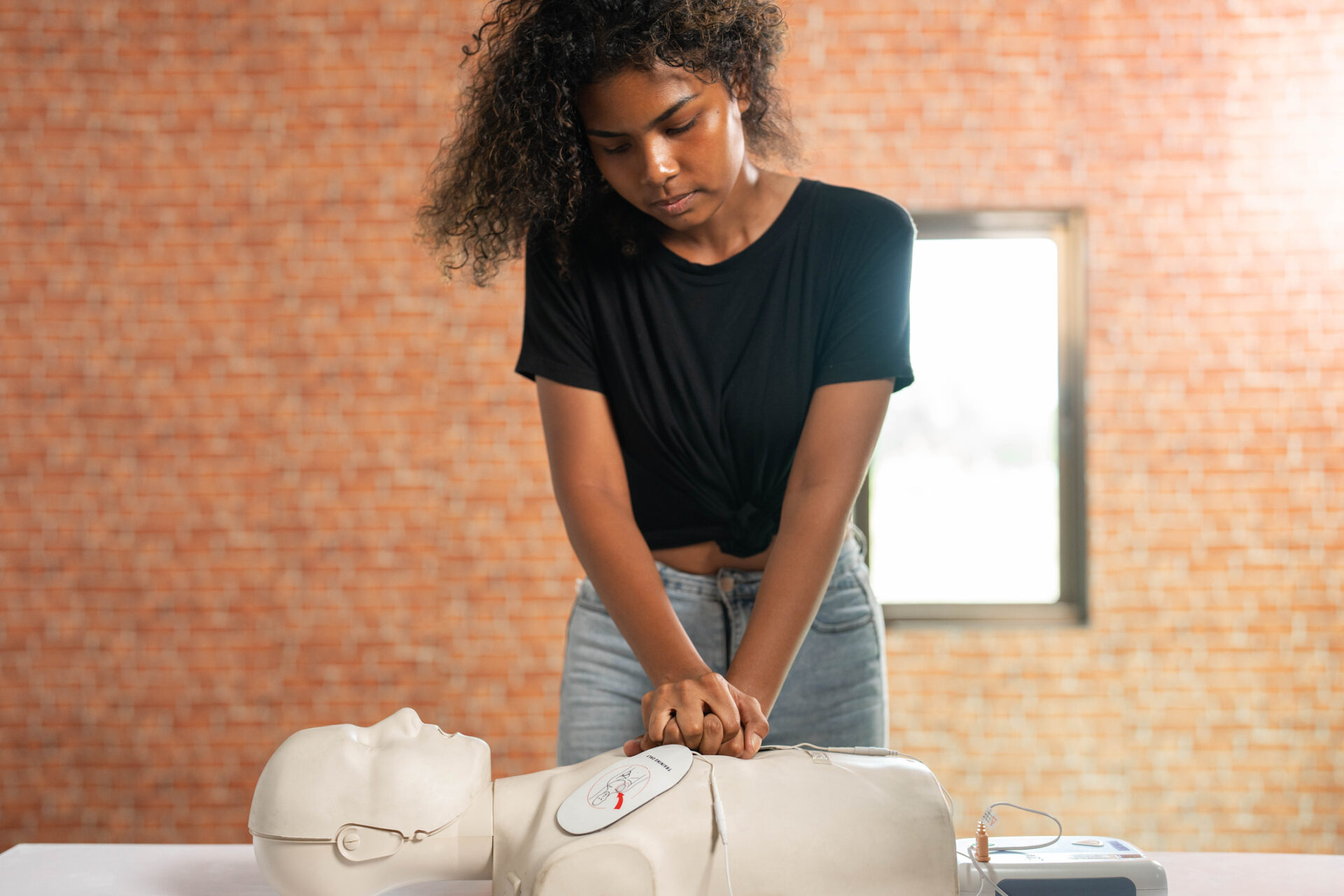Black People Have Lower Survival Chances After Bystander CPR Is Performed


August 13, 2024
Researchers found white people are three times more likely to survive when bystander CPR is administered after a cardiac arrest event.
A new NIH-funded study reveals race and gender matter when it comes to survival rates when bystander CPR is performed. The research, first published in the American Heart Association Journal Circulation, found that Black people and women are less likely to survive when bystander CPR is performed, compared to white people.
Researchers analyzed data from what they call a “large U.S. registry.” They identified more than 623,300 nontraumatic out-of-hospital cardiac arrests from 2013 to 2022 for the cohort study to determine if there is a differential association between bystander CPR and survival outcomes by patients’ sex, race, and ethnicity overall and by neighborhood strata.
What they found is white people are three times more likely to survive when CPR is administered after the person went into cardiac arrest. The study also found men of any background are twice as likely to survive as women. It’s important to note that in all cases studied, CPR was administered by someone other than a first responder.
“CPR saves lives — that, we know,” said Paula Einhorn, M.D., a program officer at NIH’s National Heart, Lung, and Blood Institute (NHLBI). “Yet the disparities revealed in this research show we need to do more to understand how to ensure equitable outcomes for all patients needing CPR. We’re hoping new insights will lead to better survival for these patient groups.”
According to the NIH, about 40% of adults who experienced cardiac arrest received CPR from a bystander who was not part of the emergency response team. This can include a family member, friend, or member of the public. Distressed patients who received bystander CPR had a 28% greater chance of surviving compared to people who did not receive bystander CPR. They were also more likely to survive without having serious brain injuries.
“It’s not just about whether bystander CPR was done, but was it done well for everyone so that, irrespective of race, ethnicity, or sex, everyone can derive the same level of benefit from someone starting CPR?” asked Dr. Paul Chan, M.D., the first study author asked about this topic. Dr. Chan is also a cardiologist at Saint Luke’s Mid-America Heart Institute in Kansas City, Missouri.
He adds, “These findings suggest we need to have a more complex understanding of improving survival and whether CPR delivered by bystanders provides similar survival benefits to all patients.”
RELATED CONTENT: Tennessee Mother Gives Warning After 7-Year-Old Daughter Dies After Popping Balloons






